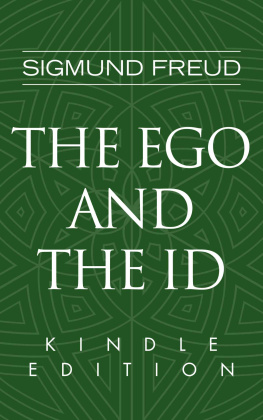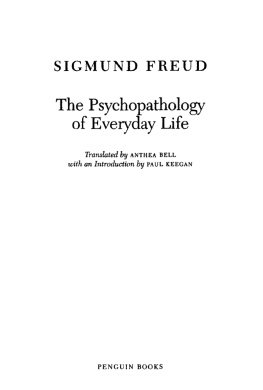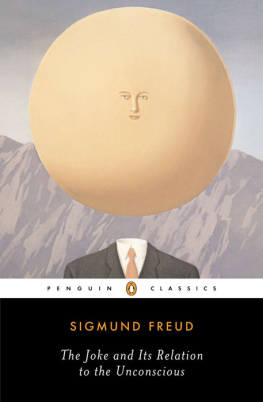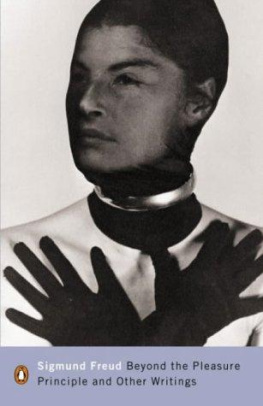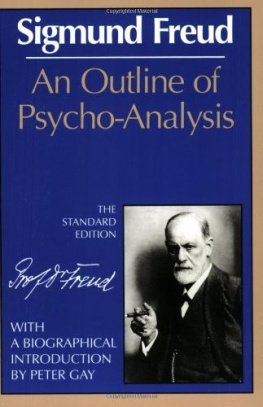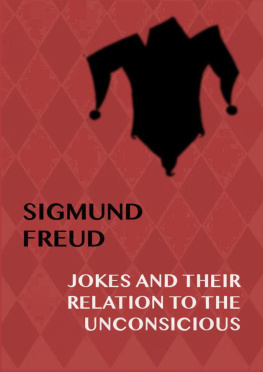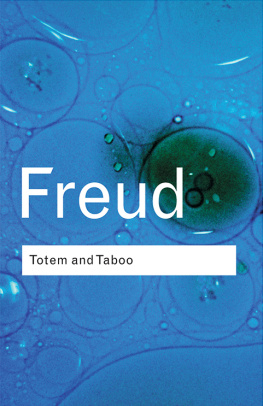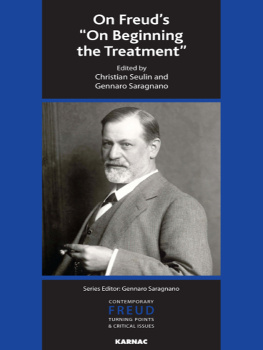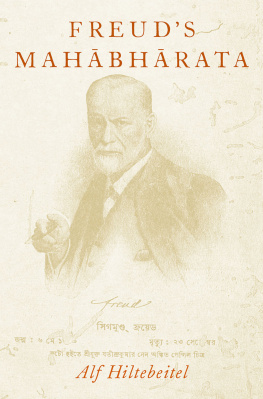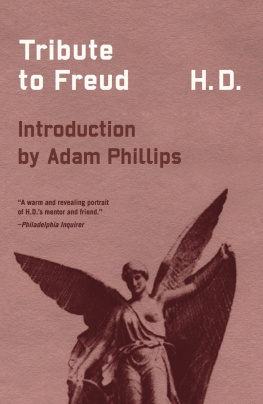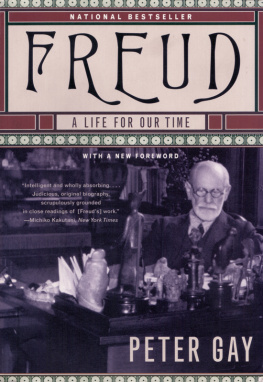THE EGO
AND THE ID
SIGMUND FREUD
1927/ Digital Edition 2013
CONTENTS
INTRODUCTION
In my essay, Beyond the Pleasure Principle, published in 1920, I began the discussion of a train of thought, my personal attitude towards which, as I mentioned there, might be described as a sort of benevolent curiosity; in the following pages this train of thought is developed further. I have taken up those ideas and brought them into connection with various facts observed in psycho-analysis and have endeavoured to draw fresh conclusions from the combination; in the present work, however, no further contributions are levied from biology, and it consequently stands in a closer relation to psycho-analysis than does Beyond the Pleasure Principle. The thoughts contained in it are synthetic rather than speculative in character and their aim appears to be an ambitious one. I am aware, however, that they do not go beyond the baldest outlines and I am perfectly content to recognize their limitations in this respect.
At the same time, the train of thought touches upon things not hitherto dealt with in the work psycho-analysis has done, and it cannot avoid concerning itself with a number of theories propounded by non-analysts or by former analysts on their retreat from analysis. I am as a rule always ready to acknowledge my debts to other workers, but on this occasion I feel myself under no such obligation. If there are certain things to which hitherto psycho-analysis has not given adequate consideration, that is not because it has overlooked their effects or wished to deny their significance, but because it pursues a particular path which had not yet carried it so far. And, moreover, now that these things have at last been overtaken, they appear to psycho-analysis in a different shape from that in which they appear to the other people.
- Sigm. Freud
I
CONSCIOUSNESS AND THE UNCONSCIOUS
IN this preliminary chapter there is nothing new to be said and it will not be possible to avoid repeating what has often been said before.
The division of mental life into what is conscious and what is unconscious is the fundamental premise on which psycho-analysis is based; and this division alone makes it possible for it to understand pathological mental processes, which are as common as they are important, and to co-ordinate them scientifically. Stated once more in a different way: psycho-analysis cannot accept the view that consciousness is the essence of mental life, but is obliged to regard consciousness as one property of mental life, which may co-exist along with its other properties or may be absent.
If I were to allow myself to suppose that every one interested in psychology would read this book, I should still be prepared to find that some of them would stop short even at this point and go no further; for here we have the first shibboleth of psycho-analysis. To most people who have had a philosophical education the idea of anything mental which is not also conscious is so inconceivable that it seems to them absurd and refutable simply by logic. I believe this is only because they have never studied the mental phenomena of hypnosis and dreams, which -- quite apart from pathological manifestations -- necessitate this conclusion. Thus their psychology of consciousness is incapable of solving the problems of dreams and hypnosis.
The term 'conscious' is, to start with, a purely descriptive one, resting on a perception of the most direct and certain character. Experience shows, next, that a mental element (for instance, an idea) is not as a rule permanently conscious. On the contrary, a state of consciousness is characteristically very transitory; an idea that is conscious now is no longer so a moment later, although it can become so again under certain conditions that are easily brought about. What the idea was in the interval we do not know. We can say that it was latent, and by this we mean that it was capable of becoming conscious at any time. Or, if we say that it was unconscious, we are giving an equally correct description. Thus 'unconscious' in this sense of the word coincides with 'latent and capable of becoming conscious'. The philosophers would no doubt object: 'No, the term unconscious does not apply here; so long as the idea was in a state of latency it was not a mental element at all'. To contradict them at this point would lead to nothing more profitable than a war of words.
But we have arrived at the term or concept of 'unconscious' along another path, by taking account of certain experiences in which mental dynamics play a part. We have found, that is, we have been obliged to assume, that very powerful mental processes or ideas exist -- here a quantitative or economic factor comes into question for the first time -- which can produce in the mind all the effects that ordinary ideas do (including effects that can in their turn become conscious as ideas) without themselves becoming conscious. It is unnecessary here to repeat in detail what has been explained so often before. We need only say that this is the point at which psycho-analytic theory steps in -- with the assertion that such ideas cannot become conscious because a certain force is opposed to them, that otherwise they could become conscious, and that then one would see how little they differ from other elements which are admittedly mental. The fact that in the technique of psychoanalysis a means has been found by which the opposing force can be removed and the ideas in question made conscious renders this theory irrefutable. The state in which the ideas existed before being made conscious is called by us repression, and we assert that the force which instituted the repression and maintains it is perceived as resistance during the work of analysis.
We obtain our concept of the unconscious, therefore, from the theory of repression. The repressed serves us as a prototype of the unconscious. We see, however, that we have two kinds of unconscious-that which is latent but capable of becoming conscious, and that which is repressed and not capable of becoming conscious in the ordinary way. This piece of insight into mental dynamics cannot fail to affect terminology and description. That which is latent, and only unconscious in the descriptive and not in the dynamic sense, we call preconscious; the term unconscious we reserve for the dynamically unconscious repressed, so that we now have three terms, conscious (Cs), preconscious (Pcs), and unconscious (Ucs), which are no longer purely descriptive in sense. The Pcs is presumably a great deal closer to the Cs than is the Ucs, and since we have called the Ucs mental we shall with even less hesitation call the latent Pcs mental. But why do we not choose, instead of this, to remain in agreement with the philosophers and, in a consistent way, to distinguish the Pcs as well as the Ucs from what is conscious in the mind? The philosophers would propose that both the Pcs and the Ucs should be described as two varieties or levels of 'psychoid', and harmony would be established. But endless difficulties in exposition would follow; and the one important fact, that the two kinds of 'psychoid' as thus defined coincide in almost every other respect with what is admittedly mental, would be forced into the background in the interests of a prejudice dating from a period in which they, or the most important part of them, were still unknown.
We can now set to work comfortably with our three terms, Cs, Pcs, and Ucs, so long as we do not forget that, while in the descriptive sense there are two kinds of unconscious, in the dynamic sense there is only one. For purposes of exposition this distinction can in many cases be ignored, but in others it is of course indispensable. At the same time, we have become more or less accustomed to these two meanings of the term unconscious and have managed pretty well with them. As far as I can see, it is impossible to avoid this ambiguity; the distinction between conscious and unconscious is in the last resort a question of a perception which must be either affirmed or denied, and the act of perception itself tells us nothing of the reason why a thing is or is not perceived. No one has a right to complain because the actual phenomenon expresses the underlying dynamic factors ambiguously.
Next page
